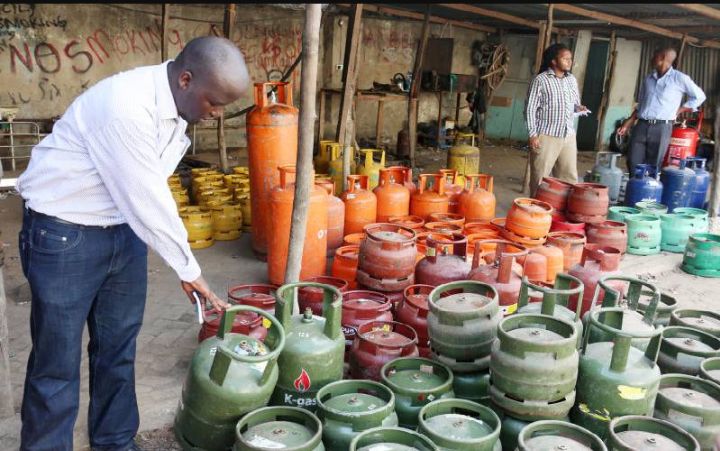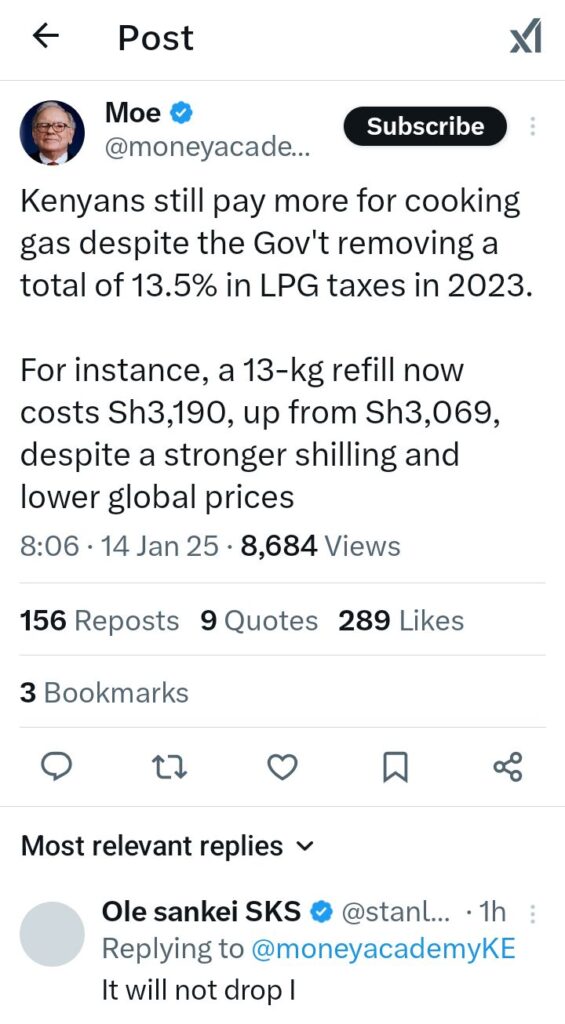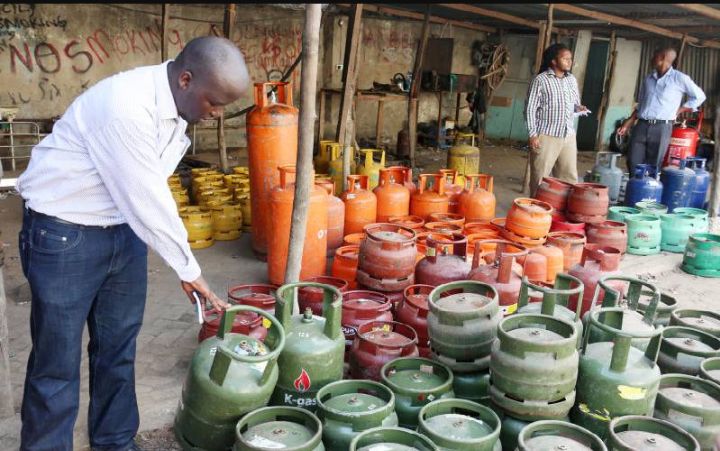In 2023, the government removed 13.5% in taxes on Liquefied Petroleum Gas (LPG) to help reduce the cost of cooking gas for households.
Many Kenyans hoped that this move would make cooking gas cheaper and ease the financial strain on families.
However, despite these tax cuts, prices remain high, leaving many wondering why they are still paying more.
Currently, a 13-kilogram gas refill costs about Sh3,190, compared to Sh3,069 before the tax removal.
This price increase has happened even though the Kenyan shilling has become stronger, and global gas prices have gone down.
Many citizens feel frustrated because the tax removal was meant to bring relief, but the opposite has happened.

Several factors may explain this unexpected situation. Some experts believe that local gas suppliers may not have passed on the benefits of the tax cuts to consumers.
Instead, they may have chosen to keep prices high to maintain their profits.
Additionally, transportation and distribution costs might still be high, contributing to the high prices.

Others point to market inefficiencies and a lack of proper regulation as reasons for the continued high costs.
Without enough oversight, gas suppliers have more control over pricing, and there is little pressure for them to reduce prices.
Consumers are left with limited options and have to pay whatever price is set.
The government has promised to monitor the situation and ensure that Kenyans benefit from lower gas prices.
However, many Kenyans feel that action is slow, and they continue to bear the high cost of living.
Cooking gas is a basic need for many families, and high prices make it difficult for households to manage their daily expenses.
Some Kenyans have turned to alternative fuels like charcoal and kerosene, which are often cheaper but less efficient and harmful to the environment.
This shift is concerning because it undermines efforts to promote clean energy and protect the environment.
Many are calling for better regulation and transparency in the gas market.
They believe that stronger government action is needed to protect consumers and ensure that price reductions are passed on to households.
For now, though, Kenyans continue to wait for the promised relief while struggling with the rising cost of essential goods and services.





















Add Comment